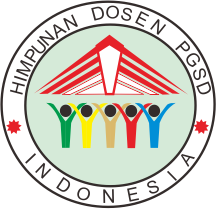The Effect of Project-Based Learning Model Using Youtube Social Media on Students' Emotional Intelligence
Abstract
Keywords
References
[1]
Salovey Peter, John Mayer. Emotional Intelligence. Journal of Imagination, Cognition, and Personality. 1990; volume 9: 185
[2]
Goleman, Daniel. Emotional Intelligence. 3rd edition. New York: Bantam Dell; 2005.100.
[3]
Boyatzis, RE, D. Goleman, K., Rhee. Clustering Competence in Emotional Intelligence: The Consortium for Research on Emotional Intelligence in Organizations. Northern Kentucky University. 1999. 4
[4]
Goleman. Emotional Intelligence: why EI is more important than IQ. Jakarta: Gramedia Pustaka Utama; 2007. 10
[5]
Patton, Patricia. EQ (Emotional Intelligence) at work. Jakarta: Pustaka Delapratasa; 1997.25.
[6]
Aswat, Hijrawatil et.al. Implications of Distance Learning during the COVID 19 Pandemic on Children's Emotional Intelligence in Elementary Schools. Basicedu's Journal. 2021; Volume 5: 2.
[7]
Karina, Sadia. The effect of project-based learning models on problem-solving abilities and emotional intelligence of junior high school students. E-Journal of the Postgraduate Program of the Ganesha University of Education, Science Study Program. 2014. Volume 4: 5.
[8]
Ablex. Harris, JH, & Katz, LG Young investigators: The project approach in the early years. New York. 2001. 7.
[9]
Klein J, Taveras S, Hope King SH, Commitante Curtis Bey L, Stripling B. Project-Based Learning: Inspiring Middle School Students to Engage in Deep and Active Learning Division of Teaching and Learning Office of Curriculum, Standards, and Academic Engagement. NYC Department of Education. New York; 2009. 8.
[10]
Chiang, CL, & Lee, H. The effect of project-based learning on learning motivation and problem-solving abilities of vocational high school students. International Journal of Information and Education Technology. 2016; Volume 6. 709- 712.
[11]
[12]
JR Mergendoller and JW Thomas. Managing Project-Based Learning: Principles from the Field. California: The Buck Institute for Education. 2003. 7.
Daryanto. Pendekatan PembelajaranSaintifik Kurikulum 2013. Yogyakarta. Gava Media. 2014..
[13]
JR Mergendoller and JW Thomas. (2003). Managing Project-Based Learning: Principles from the Field. California: The Buck Institute for Education
[14]
Hake, RR Design-Based Research in Physics Education Research: A Review, "in AE Kelly, RA Lesh, & JY Baek, eds. (In press), Handbook of Design Research Methods in Mathematics, Science, and Technology Education.2007. 11.
DOI: 10.30595/dinamika.v14i2.15278
Copyright (c) 2022 Rasito Rasito, Y Suyitno, Ristiana Dyah Purwandari

This work is licensed under a Creative Commons Attribution 4.0 International License.
ISSN: 2655-870X
|
Visitors













